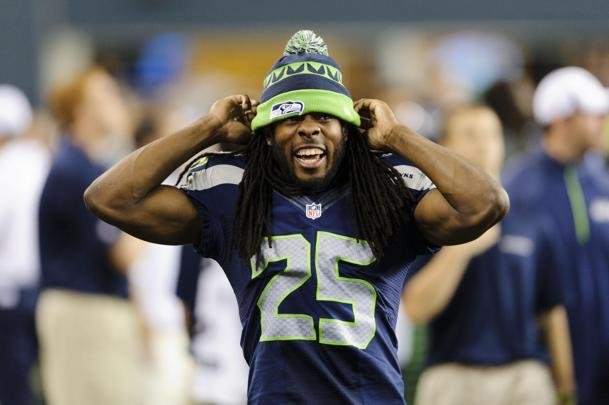BUFFALO, N.Y. (AP) Lunch is over and before the next session of game film study begins, the jokes start flying among the 80-plus referees and linesmen assembled in a downtown hotel ballroom.
”Anyone who didn’t bring their glasses should move closer to the screen so they can see,” someone says.
”Or those who need glasses,” someone else adds, amid the laughter.
If NHL players need training camp to prepare for the start of the season, officials are no different. The men in black and white stripes gave The Associated Press access to their annual camp held in Buffalo, New York, last week and it was full of colorful honesty. They also squeezed in plenty of work during the five-day camp that marks the only time all of them get an opportunity to gather before being separated to roam the continent for much of the next 10 months.
”It’s like players say what they miss the most about when they played: It’s the locker room. It’s the same for us,” veteran linesman Tony Sericolo said, referring to the playful banter. ”This is our second family. We give each other shots all the time.”
Camp days usually begin with a workout at 6:30 a.m. and are split up evenly with on- and off-ice sessions. There is an annual banquet honoring those who achieved career milestones and those who retired last year. They also have a poker night, with proceeds going toward the education of the children of late official Stephane Provost, who died in a motorcycle accident in 2005.
On the ice, the officials get their skating legs under them by playing hockey in a six-team tournament.
”We get to refresh the rules, and it gets us back in the flow,” Sericolo said. ”You start thinking hockey again because for a couple of months, we’re home, we’re relaxing.”
Off the ice, they spend hours studying film to review penalty standards, and share pointers on what approach might work best in various situations. With no major rule changes introduced this offseason, NHL director of officiating Stephen Walkom placed the focus on reviewing existing rules.
”We want to make sure we continue the standard we had in previous years,” Walkom said. ”And then there’s the new tactic that crept into the game, slashing, and continue our vigilance there to allow the skill players to play.”
Another point of emphasis was faceoffs, after linesmen spent much of last season cracking down on players attempting to gain an advantage by creeping in from the hash mark or dropping to their knees for leverage.
Numerous videos featured miked-up linesmen being assertive by warning players to make sure their feet and sticks were set while lining up inside the circle.
Another series of videos showed examples of how referees were clear and concise in explaining calls, and the reasons behind them, with coaches at the bench. In one video, Minnesota Wild coach Bruce Boudreau went from being unhappy with a call to eventually agreeing with it after having it explained to him by an official.
Sericolo said watching how his colleagues handle situations were the best lessons.
”When you watch two or three guys that really do it right, you pick up little things from each of them,” he said. ”It really helps your craft.”
Sericolo is from Albany, New York, and got into officiating after playing hockey in college. He has now worked nearly 1,300 games since making his NHL debut in October 1998.
”When you’re playing, you never say to yourself, `Oh, I really can’t wait to referee.’ We all wanted to play,” he said. ”You weren’t good enough to play, but you always wanted to stay involved in the game. And this was a great way to stay involved.”
The most difficult part of camp might actually be playing hockey.
”It is tougher, because the hockey’s not as good,” Sericolo said, with a laugh. ”And we don’t know where we’re going.”
—
More AP NHL: https://apnews.com/tag/NHL and https://twitter.com/AP-Sports
25% Bonus via Western Union























